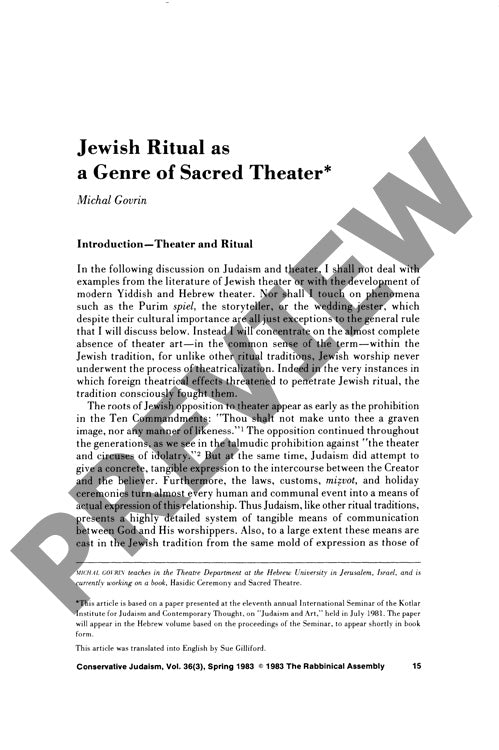Jewish Ritual as a Genre of Sacred Theat
Couldn't load pickup availability
Jewish ritual embodies a unique form of sacred theater performed not for human audiences but before a Divine Spectator, challenging traditional understandings of theatrical expression in religious practice. Through comparative analysis between Jewish ritual and other theatrical traditions, a distinctive paradigm emerges - one that resolves Judaism's fundamental tension between an imperceptible God and believers' need for tangible religious expression. Unlike conventional theater based on mimetic representation, Jewish ceremonial practice operates through symbolic, non-imitative means of expression, where participants embody their authentic roles as believers rather than portraying historical or mythological characters. The dramatic action unfolds not as historical reenactment but as active participation in continuous sacred time, with rituals like Passover and Sukkot serving as contemporary spiritual experiences. Examination of audience dynamics, participant roles, dramatic action, and expressive means reveals that Jewish sacred theater maintains a dialectical relationship with material elements, employing ritual objects and practices as divine communication tools without transforming them into incarnations of the sacred. This theatrical framework illuminates Judaism's distinctive approach to concretizing divine-human relationships while maintaining theological integrity, contributing valuable insights to both theater studies and religious scholarship in understanding how religious traditions can employ theatrical elements within worship practices.

More Information
-
Physical Description
-
Publication Information
Published 1983
ISBN
-
Publication Credits
Michal Govrin

